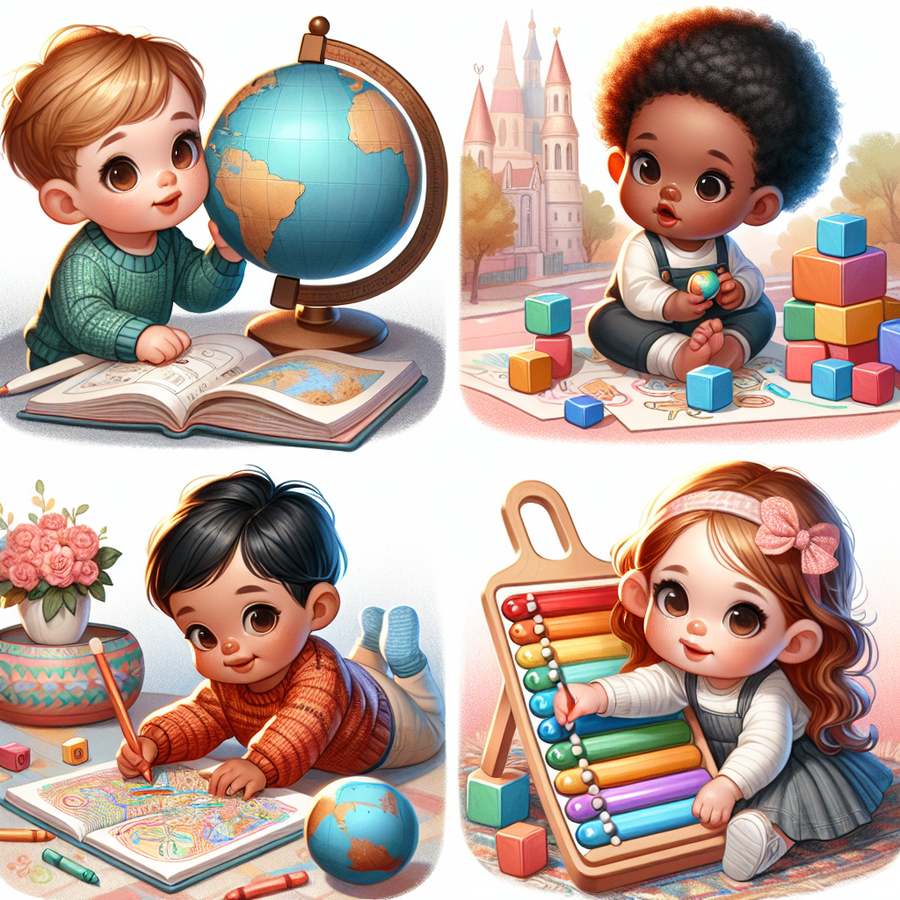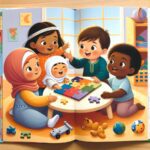Recognizing the signs of a gifted toddler and how to nurture their abilities is crucial for parents who wish to support their child’s exceptional potential from an early age. Gifted toddlers often exhibit remarkable cognitive, social, and emotional development that sets them apart from their peers. This article delves into identifying these signs and offers strategies to foster their growth.
Identifying the Signs of a Gifted Toddler
Gifted toddlers may display advanced language skills, an exceptional memory, and a deep curiosity about the world around them. They might also solve problems in unique ways and show an intense focus on subjects of interest. Recognizing these signs early can lead to better support for their development.
Moreover, gifted children often reach developmental milestones much earlier than their peers. They might start talking or reading at a young age and exhibit a profound understanding of complex concepts. Behavioral characteristics, such as a strong sense of justice or sensitivity to others’ emotions, can also indicate giftedness.
Signs of a Gifted Toddler and How to Nurture Their Abilities
Upon identifying the signs of a gifted toddler, it’s essential to nurture their abilities in a supportive environment. Engaging them in activities that stimulate their intellect and creativity is key. For example, activities to boost fine motor skills can be adapted for older toddlers to challenge their dexterity and problem-solving skills.
It’s also beneficial to introduce a variety of learning materials that cater to their interests. Whether it’s science kits, musical instruments, or art supplies, providing resources that allow for exploratory learning can significantly enhance their cognitive development. Encouraging open-ended play and fostering creativity and imagination can lead to innovative thinking and a love for learning.
Creating a Nurturing Environment for a Gifted Toddler
Creating a nurturing environment that promotes the well-being and development of a gifted toddler involves more than just academic stimulation. It also means supporting their emotional and social development. Ensuring they have opportunities to interact with peers and engage in activities that promote empathy and social understanding is vital.
Additionally, maintaining a balance between structured activities and free play is crucial. Gifted toddlers need time to explore their interests at their own pace. Balancing parent-led and child-initiated play can help ensure that they are both challenged and given the freedom to express their creativity.
In conclusion, identifying and nurturing the abilities of a gifted toddler requires a thoughtful approach that encompasses both intellectual and emotional support. By recognizing the signs early and providing an environment that encourages exploration, creativity, and emotional growth, parents can help their gifted children reach their full potential. Remember, every child is unique, and fostering their individual talents and abilities is a journey that requires patience, understanding, and love.













